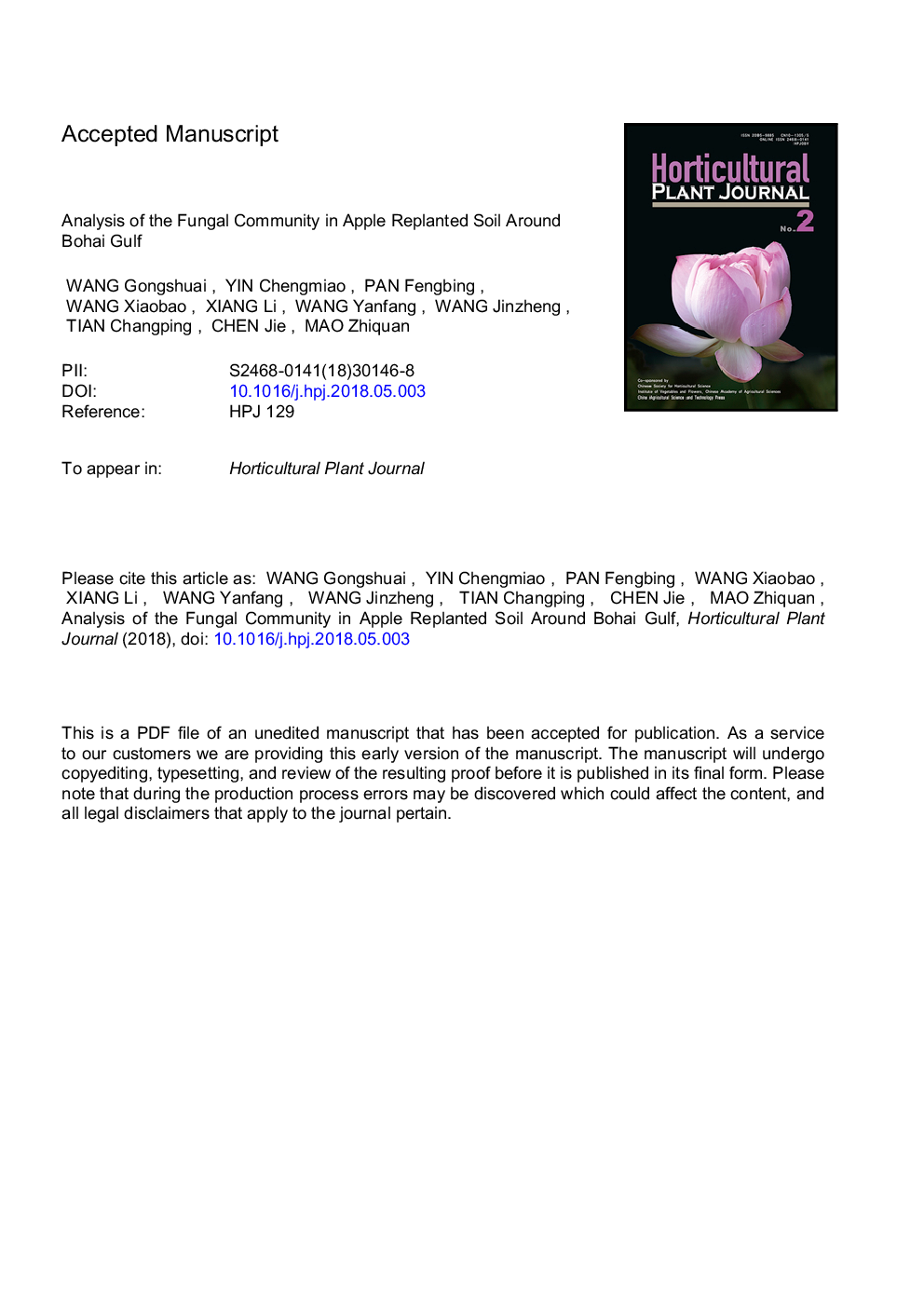| Article ID | Journal | Published Year | Pages | File Type |
|---|---|---|---|---|
| 11021737 | Horticultural Plant Journal | 2018 | 13 Pages |
Abstract
Apple replant disease (ARD) is a frequently occurring plant disease in replanted orchards around Bohai Gulf, which causes growth inhibition and even death of plants. The aim of this study was to investigate the etiology of ARD around Bohai Gulf. In this study, the primary growth inhibition of apple seedlings was evaluated in ten replanted soils, sampled around Bohai Gulf. A fungal clone library was used to identify changes in the structure and composition of the soil fungal community. The results revealed that the Simpson diversity indices of Laizhou and Pulandian orchards were higher than others, presenting severe ARD. Ascomycota dominated around Bohai Gulf at the phyla level. Fusarium and Saccharomyces were abundant in all replanted soils. In addition, correlations between the relative abundance of fungal genera in soils and the severity of ARD were analyzed. The results showed that Fusarium was correlated positively with the severity of ARD, but Mortierella was negatively correlated. Furthermore, the quantitative PCR of Fusarium oxysporum, which was regarded as a factor of ARD, was performed. Overall, this study demonstrated that ARD was strongly associated with an unbalanced microbial ecosystem with more pathogenic fungi, while Fusarium in the apple replanted soil was the key factor for ARD around Bohai Gulf.
Keywords
Related Topics
Life Sciences
Agricultural and Biological Sciences
Forestry
Authors
Gongshuai WANG, Chengmiao YIN, Fengbing PAN, Xiaobao WANG, Li XIANG, Yanfang WANG, Jinzheng WANG, Changping TIAN, Jie CHEN, Zhiquan MAO,
